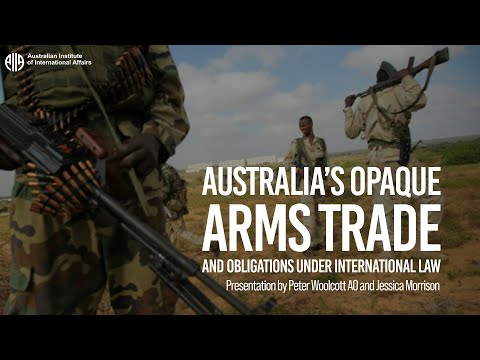September 21, 2025, 4:04 pm
Australia played a key bipartisan role in shepherding through what was a complex and fraught treaty process. In 2006 Australia was one of the seven co-authors of the UNGA resolution calling for an Arms Trade Treaty. Australia continued its active role which culminated in the appointment of Peter Woolcott by the UNSG to steer through the final crucial negotiations which produced the treaty text that was ultimately adopted by the UNGA in 2013 and came into force the next year.
The ATT seeks to establish the highest possible common international standards to regulate the international trade in conventional arms, eradicate their illicit trade and prevent their diversion. The Treaty has an overarching object and purpose to reduce human suffering and contribute to security and stability.
The last two years have seen extensive scrutiny of Australian military exports, including to Israel.
Quakers Australia have been examining Australian military trade architecture. Their report being launched at this event finds that Australia’s transparency mechanisms are inferior to those of many other similar nations. This is significant given that successive Australian governments have invested extensively in increasing the size of Australian military exports. This raises major questions in terms of public and parliamentary accountability.
It also raises questions as to whether Australia is prepared to continue its leadership role within the Arms Trade Treaty. While the ATT has seen significant benefits in regard to norm-setting and national control settings, it has not yet made clearly observable progress towards the objectives of reducing human suffering.
This event will introduce the Quaker report and reflect on the implications of this for both Australian policy and our broader role as a middle power in arms control mechanisms internationally.
Content Creator – Australian Institute of International Affairs



